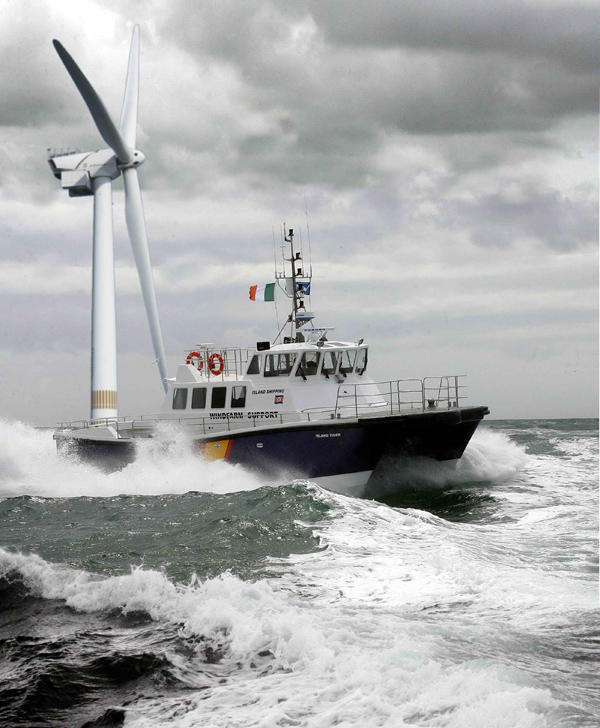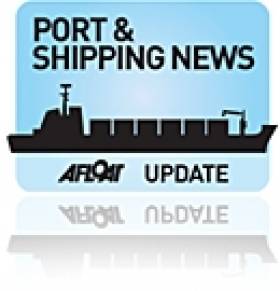Displaying items by tag: Greater Gabbard Offshore WindFarm
Wicklow's Wildcat Wind-farmer's
The County Wicklow based firm, Island Shipping which ordered a pair of Wind-farm support service vessels starting with the Island Tiger, recently took up station on charter work at the world's largest offshore wind-farm construction project, writes Jehan Ashmore.
The Island Tiger is working at the Greater Gabbard Offshore Wind-farm in the North Sea, which is located 25km off the Suffolk coastline. The site of the £650m project is identified as one of three strategic locations for offshore wind-farm development identified by the UK Government. The 140 wind-turbine project with a 504MW capacity is owned by joint venture partners Scottish and Southern Energy (SSE) and RWE npower (RWE).
The second newbuild Island Panther, is currently under construction at Safehaven Marine, Cork and available for charter in 2011. Both craft are of the WildCat 53 design catamaran, that are robust to handle in heavy seas. The 16m craft are designed to go at high-speed at a maximum of 27 knots and are water-jet propelled. The craft are manned by a crew of two and can carry 12 passengers, which is the craft's primary role to transfer wind-farm support personnel, equipment and their supplies to land at the offshore wind-turbine installations.
The charter market for such service-support craft is increasing as the number of offshore wind-farm projects continue and the need to maintain them when completed. Before Island Tiger took up North Sea duties, the newbuild was show-cased at SeaWork, the shipping industry's event for small workboats that was held in Southampton during June.
Apart from experience in serving the offshore wind-farm industry, Island Shipping also operate vessels for charter management; marine construction and underwater operations which involved the company's tug Husky in assisting in the contruction of the new River Shannon road tunnel, close to Limerick City.

Island Tiger in rough seas passes a wind-turbine






























































